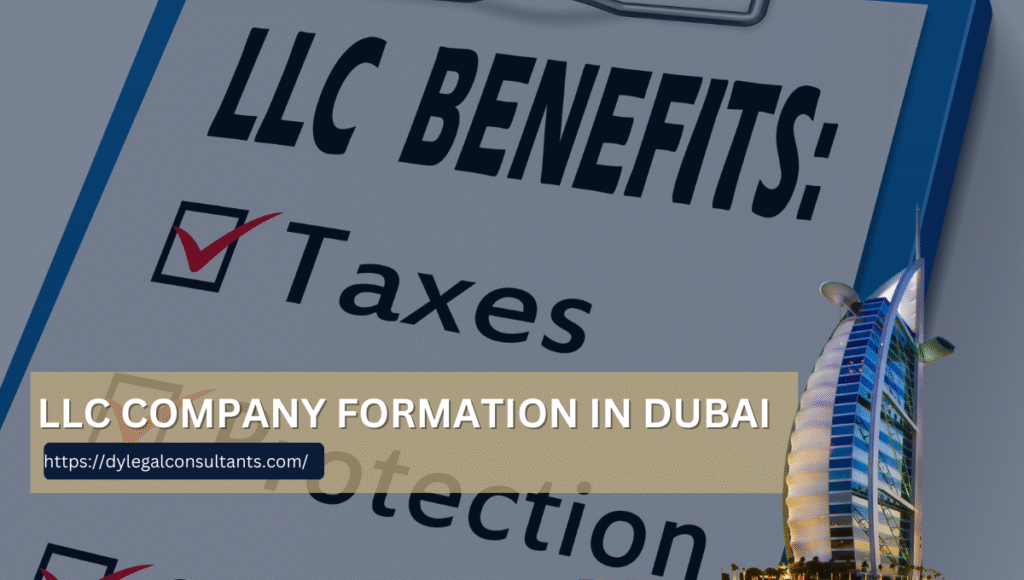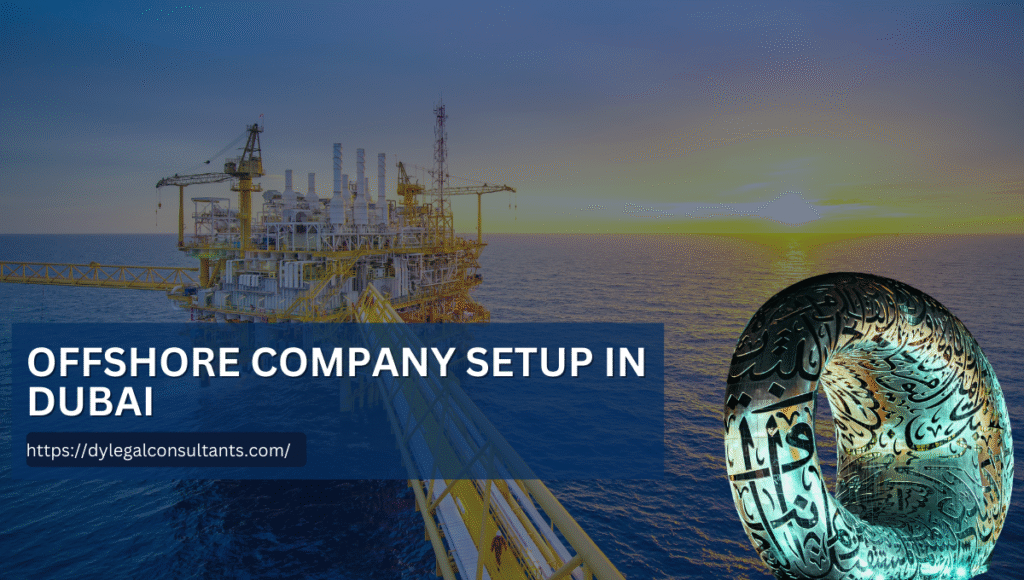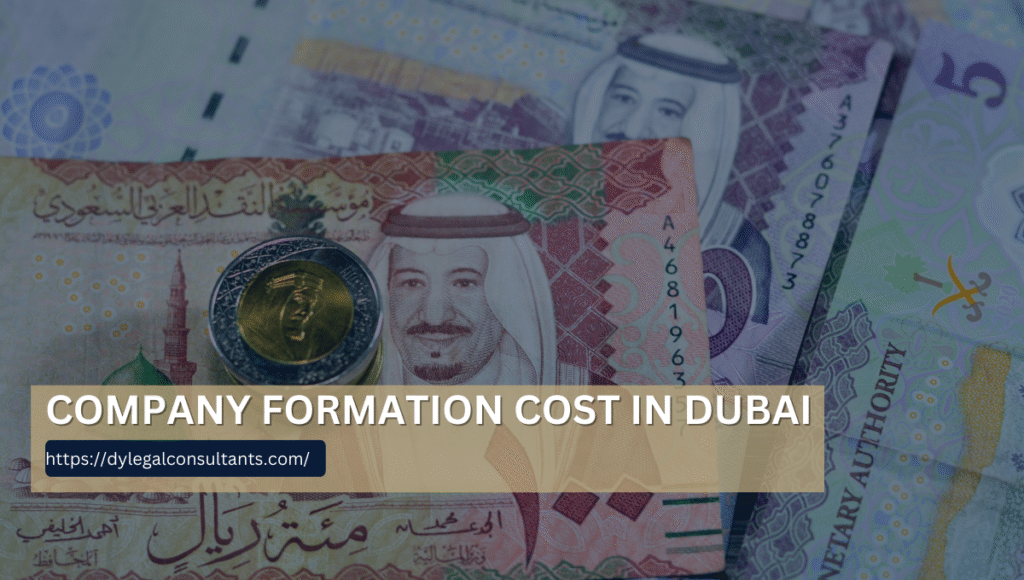Dubai offers a vibrant, tax-friendly environment and a thriving international hub where business opportunities in Dubai abound. From fintech and digital assets to import-export and tourism, Dubai’s strategic location and modern infrastructure make it ideal for entrepreneurs. In this guide, we walk through how to start a business in Dubai, from choosing the right structure (LLC, free zone, or offshore) to obtaining your Dubai business license, and explain key factors like costs and visas. We also link to specialist legal resources to simplify the process.
Key takeaway: Dubai’s open economy and investor-friendly policies make it relatively easy to launch a company. Whether you plan to form an LLC on the mainland or set up in a free zone or offshore jurisdiction, our step-by-step overview will help you navigate each stage of company setup.
Also Read: What to Do if Your Landlord Refuses to Return Your Deposit
Why Start a Business in Dubai?
Dubai’s appeal for new businesses lies in its robust growth and supportive policies. The emirate attracts global entrepreneurs with:
1) Zero/Low Taxes
Dubai has no personal income tax and offers a 0% corporate tax in many free zones. Only a 5% VAT applies to most goods/services.
2) Thriving Economy
The UAE’s economy is one of the Gulf’s largest. GDP growth forecasts remain strong. Dubai’s population is mostly expats, reflecting its business-friendly environment. In fact, expats are over 80% of the UAE workforce.
3) Strategic Location
As a global crossroads between East and West, Dubai is a major trade and logistics hub. New businesses can easily reach markets in the Middle East, Africa, and beyond.
4) Quality of Life & Infrastructure
World-class facilities, modern transport, and a safe environment make it easy to live and work in Dubai. High-speed internet, advanced logistics (e.g., ports and airports), and supportive regulations attract innovators.
5) Access to Talent and Investment
Dubai hosts numerous multinational firms and startups, offering networking, funding, and a skilled labor pool. Free zones and incubators (e.g., DIFC, DMCC) provide funding and mentoring for SMEs and startups.

These advantages mean business startups in Dubai enjoy strong support and demand. As DMCC notes, Dubai is one of the most sought-after places for doing business… a thriving international hub with tax-friendly policies and outstanding infrastructure. In practice, tens of thousands of new companies register in Dubai each year, underscoring its appeal to entrepreneurs worldwide.
Also Read: Real Estate Dispute in Dubai
Business Opportunities in Dubai
Entrepreneurs often ask: What are the best industries to tap into? Dubai’s diversification drive means a wide range of sectors are growing. Key business opportunities in Dubai include:
1) International Trade & E-Commerce
Leveraging Dubai’s central location, import-export, trading, and e-commerce businesses thrive. From commodities to consumer goods, Dubai’s ports and logistics ease cross-border trade.
2) Technology & Innovation
Dubai positions itself as a tech hub, especially in fintech, artificial intelligence, and blockchain. For example, Dubai’s AI initiatives and crypto regulations attract companies in crypto exchanges, fintech apps, and AI services.
3) Tourism & Hospitality
Dubai is a global tourist destination. Hotels, travel agencies, events, and entertainment businesses see high demand year-round. The Expo and regular conferences create consistent opportunities.
4) Healthcare & Education
The UAE invests heavily in healthcare infrastructure and education, creating demand for clinics, med-tech, training institutes, and e-learning platforms.
5) Renewable Energy & Cleantech
As part of sustainability goals, clean energy and recycling initiatives are encouraged. Companies in solar, wind, and waste management are gaining ground.
6) Logistics & Real Estate
With ongoing infrastructure projects and free zones, logistics providers, construction firms, and real estate services find ample opportunity.

These opportunities grow as Dubai continues diversifying beyond oil. According to DMCC, Dubai is actively fostering sectors like crypto and AI (e.g., Dubai’s Virtual Asset Regulatory Authority for cryptocurrency businesses and its AI development initiatives). The key takeaway: Dubai businesses span nearly every industry, and the government often offers incentives (grants, free zone perks) to encourage new ventures.
Setting Up a Business in Dubai: Jurisdictions & Structures
One of your first decisions is choosing the right jurisdiction and corporate structure. Dubai offers three main options: Mainland, Free Zone, and Offshore. Each has different ownership rules, market access, and setup requirements.
1) Mainland (Onshore) Companies
These entities (often structured as an LLC) can trade directly with the local UAE market and bid on government contracts. Historically, a local sponsor (UAE national) had to hold a 51% share, but under new regulations, most business activities now allow 100% foreign ownership. Mainland companies register with Dubai’s Department of Economic Development (DED). They require a physical office and can hire unlimited UAE residents.
2) Free Zone Companies
Dubai has over 30 specialist free zones (e.g., DMCC, DAFZA, and Dubai Internet City). These allow 100% foreign ownership and offer simple immigration rules, but free zone companies typically cannot do direct business in the mainland UAE without a local distributor. Setup is usually faster, and the licensing is via the free zone authority. Many free zones also offer streamlined company formation packages in Dubai for specific sectors (tech, media, logistics, etc.).
3) Offshore Companies
An offshore company (e.g., in JAFZA or RAKIA) is mainly for asset holding or international trade. It allows full foreign ownership, but offshore entities cannot trade in the UAE market or rent offices. They often provide visa eligibility but come with limitations on local activity. An offshore setup can be very fast and may not require physical presence after formation.

Choosing the right path depends on your goals. Free zones are ideal for export/import businesses, IT, and e-commerce (leveraging Dubai’s export-friendly infrastructure), whereas a Mainland LLC is best if you need UAE market access (e.g., retail shops, F&B outlets, and local services). Offshore is suited for holding companies or international trade without local operations.
LLC Company Formation in Dubai
A Limited Liability Company (LLC) on the mainland is the most common setup for general commercial or service businesses. An LLC provides liability protection: shareholders’ personal assets are separate from the company’s debts. Key points about LLC company formation in Dubai:
1) Ownership
Under the new Investment Law, 100% foreign ownership of an LLC is allowed for most activities. This means you no longer need a local partner for many sectors. For certain strategic sectors (some real estate, banking, insurance, and oil), partial UAE ownership may still be required.
2) Shareholders
Typically, 2–50 shareholders (one or more individuals or corporate entities). There are also one-person LLC options for smaller businesses.
3) Capital
Some activities require minimum share capital, but many have no fixed capital requirement in Dubai. You will need to specify the capital in the Memorandum of Association (MoA).
3) Licensing
An LLC must apply for a trade license in Dubai from DED (commercial, professional, or industrial, depending on activity). For example, a trading or consultancy LLC uses a Commercial or Professional license (fees vary).
4) Regulations
An LLC must have a registered physical office in Dubai and comply with the UAE Commercial Company Law (Federal Decree-Law No. 2 of 2015) and the Company Regulation.

Given these rules, forming an LLC is straightforward. The steps generally include choosing a trade name, applying for initial approval, preparing an MoA, leasing office space, and obtaining the trade license and incorporation certificate. After setup, you can sponsor employees and receive a residency visa. As Nomad Capitalist notes, foreigners can indeed incorporate an LLC there with 100% of the shareholders residing abroad; there is no need to live in Dubai to own the company. Many expats take advantage of this: Yes. Many foreigners choose to start businesses in Dubai, and expats make up over 80% of the population.
Also Read: Property Transfer Procedure in Dubai
Offshore Company Setup Dubai
For businesses that don’t need to operate in the UAE domestic market, an offshore company formation in Dubai can be useful. Offshore companies (often set up in zones like JAFZA Offshore, RAK ICC, or DIFC) have distinct features:
1) Ownership & Control
You have 100% ownership, and typically, a nominee director may be required per jurisdiction rules.
2) Activities
An offshore company usually can trade internationally and hold assets, but it cannot conduct commercial business inside the UAE. It is often used for asset protection, real estate ownership, or holding IP.
3) Visas
Some offshore jurisdictions allow the owner to obtain UAE residence visas, while others do not.
4) Setup Requirements
Generally simpler than onshore, you often need only a local registered agent and minimal documentation (like a brief business plan and passport copies). The Company registration fee can be minimal (e.g., DMCC offshore starts at around AED 9,000).
5) Limitations
Offshore companies do not get Dubai local tenancy contracts or broad visa quotas like mainland companies do. They also can’t bid for UAE government contracts.

In summary, an offshore company setup in Dubai provides flexibility for international business but requires careful planning if you later want to trade in the UAE. Always check the rules of the chosen offshore jurisdiction.
Dubai Business License and Company Registration
No matter the structure, every business in Dubai needs a trade license and proper registration. Here’s what you should know:
1) Dubai Business License (Trade License)
This is the official permit to operate. In Dubai, the Department of Economic Development (DED) issues mainland licenses, while each free zone authority issues its own licenses. There are six main license categories in Dubai: Commercial, Professional, Industrial, Tourism, Agricultural, and Crafts. (For example, a trading company uses a Commercial license, a consultant uses a Professional license, etc.) The cheapest license type is usually a Professional License (for consultancies/services), which has lower fees than a Commercial or Industrial license.
2) Dubai Corporate Registry
Mainland companies register with the DED (often called the Dubai Corporate or Business Registry). Free zone companies register with the respective free zone authority. The legal details (name, shareholders, office address) are recorded in the official register (the Dubai Registrar of Companies is essentially the DED for onshore entities).
3) Documentation
To register, you typically need copies of the owners’ passports and visas, no-objection letters (if employed in the UAE), the drafted Memorandum of Association (for LLCs) or LSA agreement, and a tenancy contract for the office (attested by RERA if in Dubai). For new businesses, as Invest Dubai notes, to start a business in Dubai, you must hold a valid visa… All new applicants need a Copy of the license holder’s passport (if a foreigner) or Emirates ID (if a resident); a Copy of the applicant’s residence visa or entry permit (for non-GCC nationals); and the Company’s Articles of Association (Not required for a one-person LLC).
4) Process
After getting initial approvals and finalizing documents, you submit them to the authority and pay fees. Once approved, you receive your trade license and company registration certificate. Only then can you legally operate.
A key note: DY Legal Consultants emphasizes the importance of clear agreements in business setups: We draft and review contracts with precision, ensuring clarity and protecting your interests in every transaction. This highlights that throughout company formation, careful legal documentation is crucial (for MOAs, lease agreements, shareholder agreements, etc.).

Key License Types in Dubai
| License Type | Scope / Use Case | Suitable For |
| Commercial | Trade in goods, import/export, retail, and real estate activities. | Trading companies, general stores, import/export firms. |
| Professional | Service providers (consultancy, crafts, freelancers, etc.). | Consultants, freelancers, artisans, tech services, salons. |
| Industrial | Manufacturing and industrial activities (e.g., factories). | Manufacturers who transform resources into products. |
| Tourism | Travel agencies, hotels, and tourism-related services. | Travel agents, tour operators, and hotel management companies. |
| Agricultural | Farming, animal husbandry, and agricultural trading activities. | Farms, nurseries, and agro-based trade. |
| Crafts | Handicrafts and traditional craft activities. | Handicraft makers, small workshops. |
All licenses require initial approval and renewal annually. Actual fees vary by license type and jurisdiction.
Company Formation in Dubai Cost
Budgeting is important. The total company formation cost in Dubai depends on several factors (jurisdiction, license type, office rent, services, etc.). As a rule of thumb, plan on AED 20,000–30,000 (approximately USD 5,400–8,200) to cover basic setup expenses. This range typically includes:
1) Registration Fee
One-time fee to register the company name and details (e.g., ~AED 9,000 in a free zone like DMCC, or similar for a mainland DED application).
2) License Fee
Annual fee for the trade license. In free zones, this can range from AED 10,000 to 50,000 depending on activity. Mainland license fees (via DED) start around AED 15,000, but vary by activity and office size.
3) Office or Desk Space
Most jurisdictions require physical office space. A flexi-desk in a free zone costs roughly AED 15,000–20,000 per year, while mainland office rents vary widely by location.
4) Visa Processing
If you plan to reside in the UAE or hire staff, visa fees, medical tests, and Emirates ID can add AED 3,000–4,000 per visa initially. (Some free zones include one visa in packages.)
5) Professional Fees
Legal, document preparation, and processing fees (e.g., using a business setup consultant) typically run AED 5,000–15,000 depending on complexity.
For example, the DMCC free zone outlines that registration can start at AED 9,000, and license fees (renewals) are AED 10,000–50,000 annually. After including office and visa, a small free zone company might spend ~AED 20k-30k to begin. Mainland company costs are comparable, though you also pay DED fees and local sponsorship fees (if applicable).

Quick Cost Check: According to industry sources, for the cost of company setup in the UAE, you should budget between AED 20,000 and AED 30,000. Additional approvals or a foreign trade name can increase this.
Visas & Residency for Business Owners
Starting a company in Dubai typically allows you to sponsor yourself (and dependents) for UAE residency. As a business owner, you can apply for an investor or partner visa once your trade license is issued. This long-term visa (usually 2–3 years, renewable) lets you live in the UAE and sponsor family. Employees of your company can get employment visas under your sponsorship.
For free zone setups, most authorities bundle one visa with the package (the Golden Visa option aside, which requires a higher investment). Expect visa processing fees around AED 2,000–3,000 plus medical insurance (~AED 800/year). Mainland companies will apply through the General Directorate of Residency.
If you think, “Does Dubai give a business visa?” Then the answer is yes, forming a company in Dubai makes you eligible for an investor/business visa. After your business license is issued, you can apply for a residency visa as the owner or an employee of the company. These visas typically last 2–3 years and are renewable, and they allow you to live and work in the UAE. Additional fees for medical tests and Emirates ID apply.
Engaging Company Formation Experts
Navigating Dubai’s setup process is much easier with professional help. Company formation companies in Dubai (like DY Legal Consultants) provide end-to-end support: advising on the best jurisdiction, handling paperwork, preparing MoAs and contracts, and liaising with authorities. For example, DY Legal Consultants highlights their core strength: we draft and review contracts with precision, ensuring clarity and protecting your interests in every transaction, a crucial service when finalizing legal documents for your new company.
If you want to ensure your Dubai LLC company setup or offshore registration is done correctly, consider partnering with a reputable consultant. At DY Legal Consultants, our team’s local expertise and fast turnaround time can simplify the entire process. In particular, we can assist with preparing the Memorandum of Association, drafting shareholder agreements, and securing your trade license in Dubai and visas.

Call to Action: For tailored guidance, reach out to DY Legal Consultants, one of the leading corporate law firms in Dubai, to fast-track your company formation process. Our experts can advise on company formation and registration details and ensure compliance with UAE regulations at every step.
FAQ
How much does it cost to start a business in Dubai?
Can I start a business in Dubai as a foreigner?
Can I own 100% of a business in Dubai?
What is the cheapest Business License in Dubai?
Does Dubai give a business visa?
How much is a free zone visa?
How to start a business in Dubai with no money?
Disclaimer: The content in this article is provided for informational purposes only and does not constitute legal advice.

